Tom's Hardware Verdict
Patriot’s Viper VP4100 is a wicked fast PCIe 4.0 x4 M.2 NVMe SSD that features an edgy looking and efficient heatsink. If you are a gamer or a prosumer that wants a high-end SSD, be sure to check this SSD out.
Pros
- +
Solid performance
- +
Large write cache
- +
Power-efficient
- +
Effective heatsink
Cons
- -
Costly
- -
Blue PCB
Why you can trust Tom's Hardware
Thanks to the addition of PCIe 4.0, AMD has one-upped Intel and enables enthusiasts the opportunity to deck out their systems with some of the fastest flash ever. If you recently upgraded to AMD’s latest-gen X570 motherboards, you are well equipped to handle what we’re going to show you today.
The Viper VP4100 is a high-end SSD through and through. The drive is one of the fastest SSDs in terms of sequential performance, and yet it is just a fraction of the size of your typical hard drive. Enabled by a Phison E16 PCIe 4.0 x4 NVMe controller and Kioxia’s (formerly Toshiba Memory) BiCS4 TLC, it can handle large file transfers without a sweat.
Specifications
| Product | Viper VP4100 1TB | Viper VP4100 2TB |
|---|---|---|
| Pricing | $219.99 | $439.99 |
| Capacity (User / Raw) | 1000GB / 1024GB | 2000GB / 2048GB |
| Form Factor | M.2 2280 | M.2 2280 |
| Interface / Protocol | PCIe 4.0 x4 / NVMe 1.3 | PCIe 4.0 x4 / NVMe 1.3 |
| Controller | Phison PS5016-E16 | Phison PS5016-E16 |
| DRAM | DDR4 | DDR4 |
| Memory | Toshiba 96L TLC | Toshiba 96L TLC |
| Sequential Read | 5,000 MBps | 5,000 MBps |
| Sequential Write | 4,400 MBps | 4,400 MBps |
| Random Read | 800,000 IOPS | 800,000 IOPS |
| Random Write | 800,000 IOPS | 800,000 IOPS |
| Encryption | N/A | N/A |
| Endurance | 1,800 TBW | 3,600 TBW |
| Part Number | VP4100-1TBM28H | VP4100-2TBM28H |
| Warranty | 5-Years | 5-Years |
The VP4100 comes in capacities of 1TB and 2TB. Patriot rates sequential performance at up to 5.5/4.4 GBps read/write, and random performance stretches up to 800,000 read/write IOPS.
As a result, the drive commands a premium price. The 1TB model retails for $219.99 while the 2TB model lands at $439.99. The drives also come with high endurance ratings of 1,800TB for the 1TB model and 3,600TB for the 2TB model.
Unlike Corsair’s Force MP600, however, the VP4100 does not feature hardware-accelerated AES 256-bit encryption support. But it does come with the standard support S.M.A.R.T. data reporting, trim support, and you can secure erase the drive via the Format NVM command.
Software and Accessories
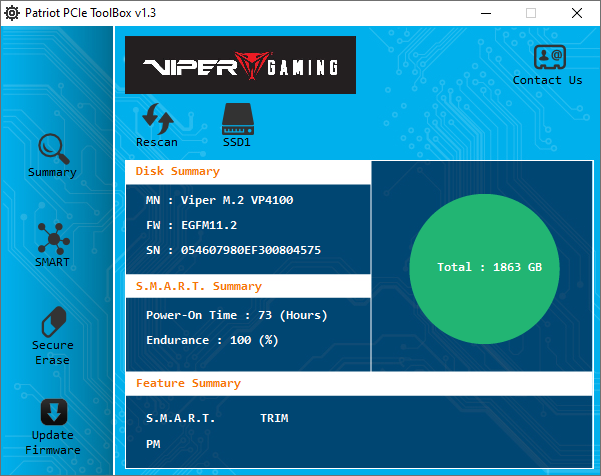
Patriot provides a rather basic toolbox, but it lets you monitor your drive’s S.M.A.R.T. data, update firmware, and run the secure erase command. And, unlike Corsair’s SSD Toolbox, Patriot’s actually issues a proper secure erase instead of just overwriting the drive.
A Closer Look
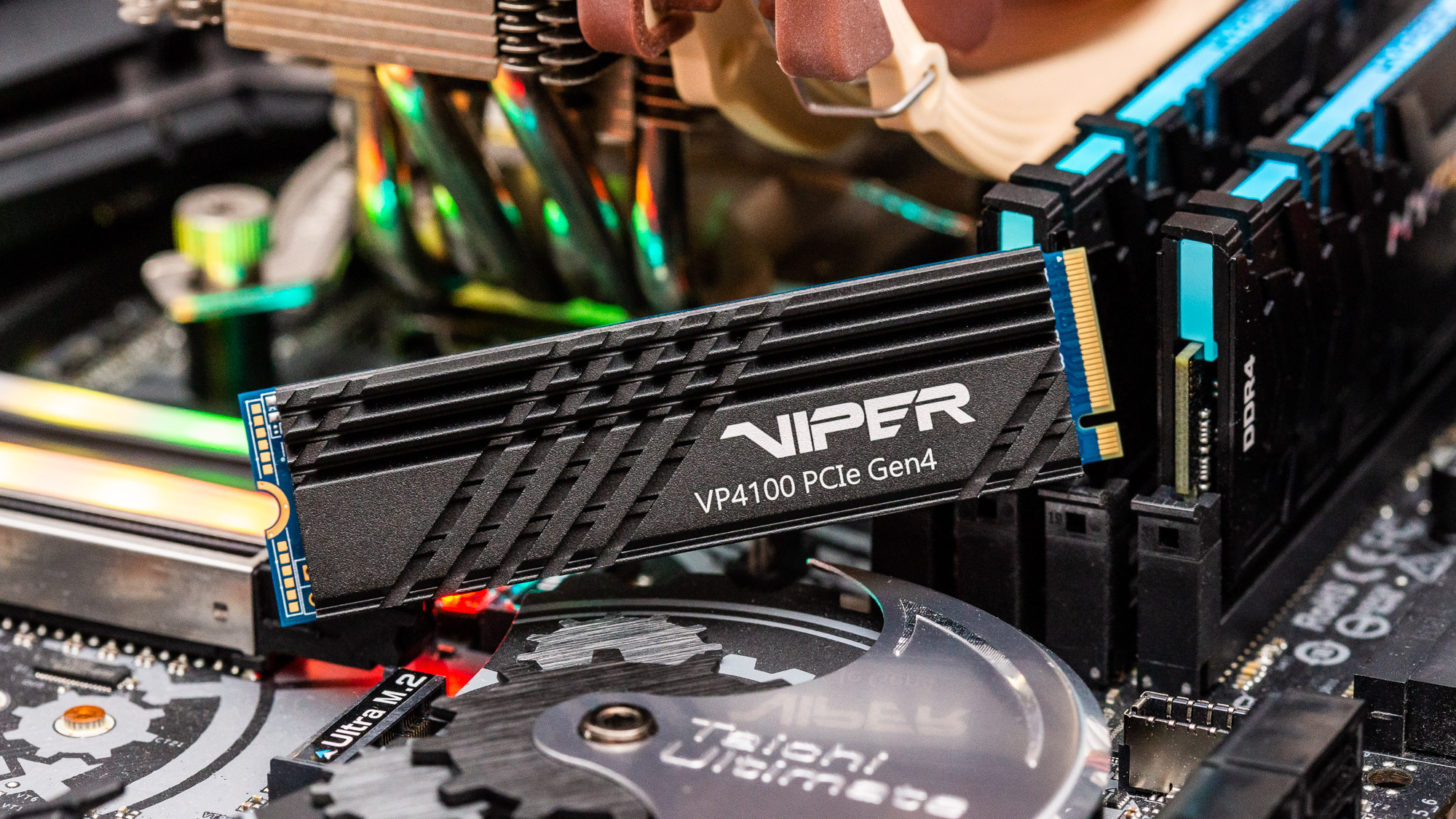
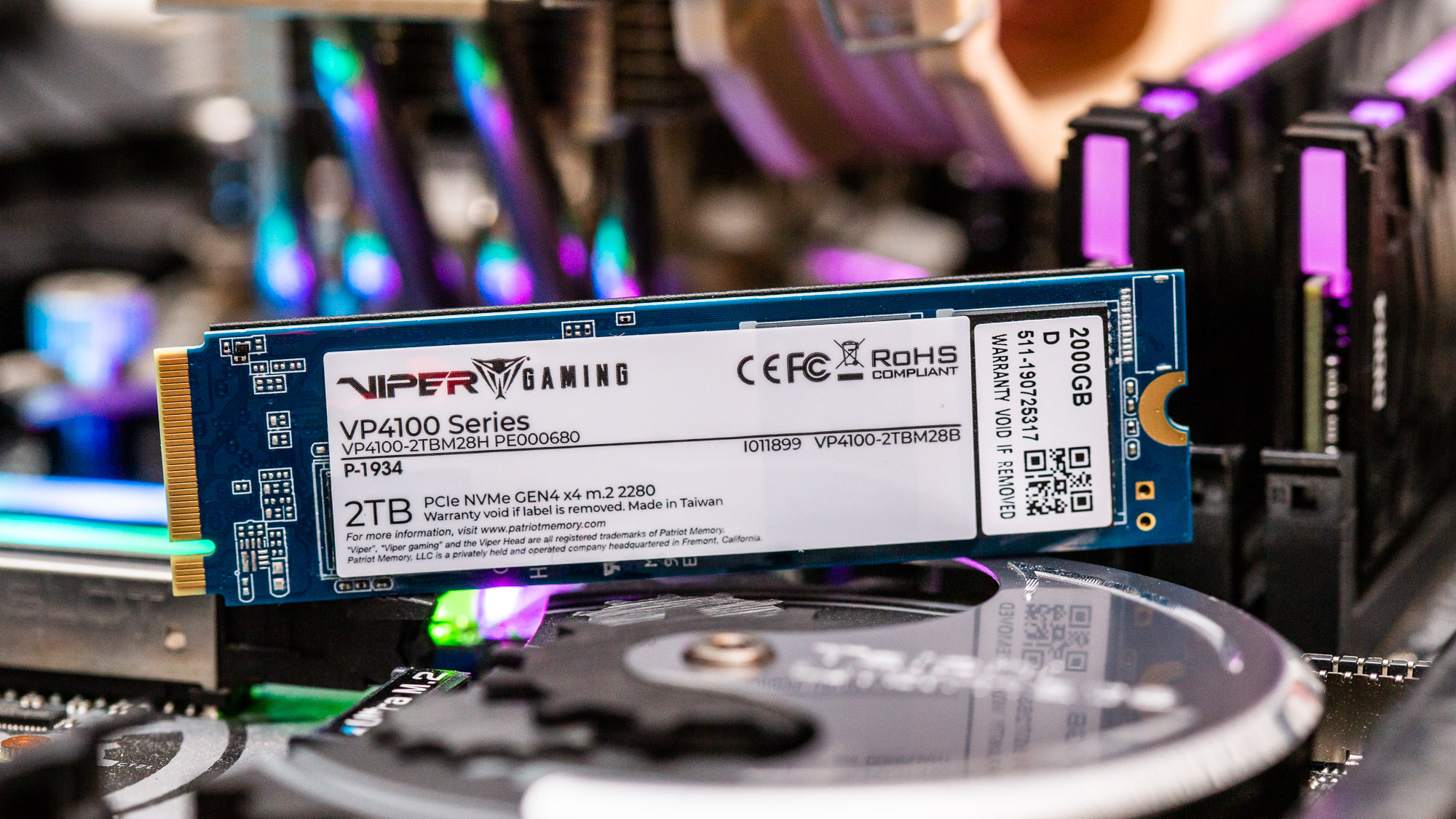
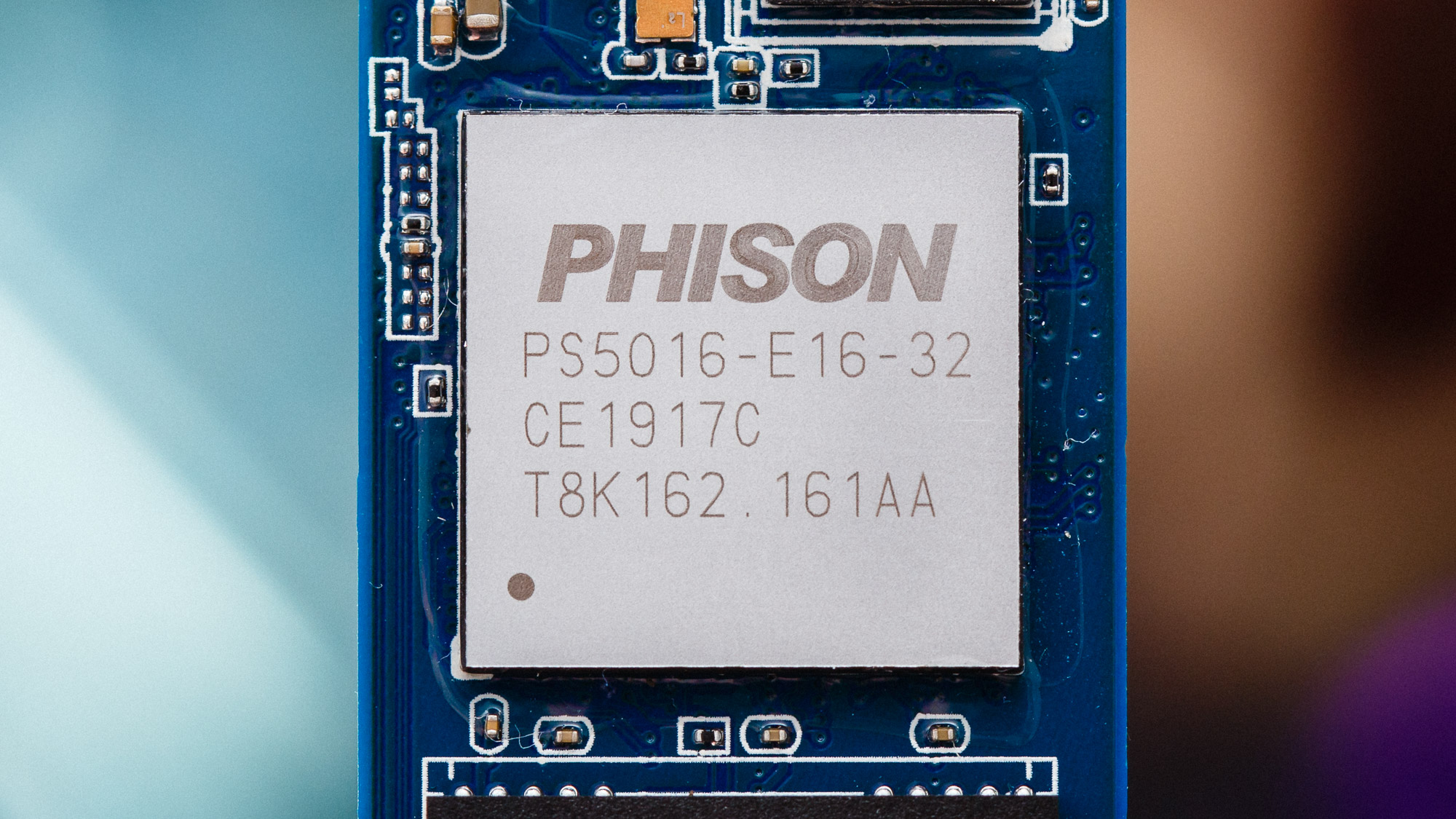
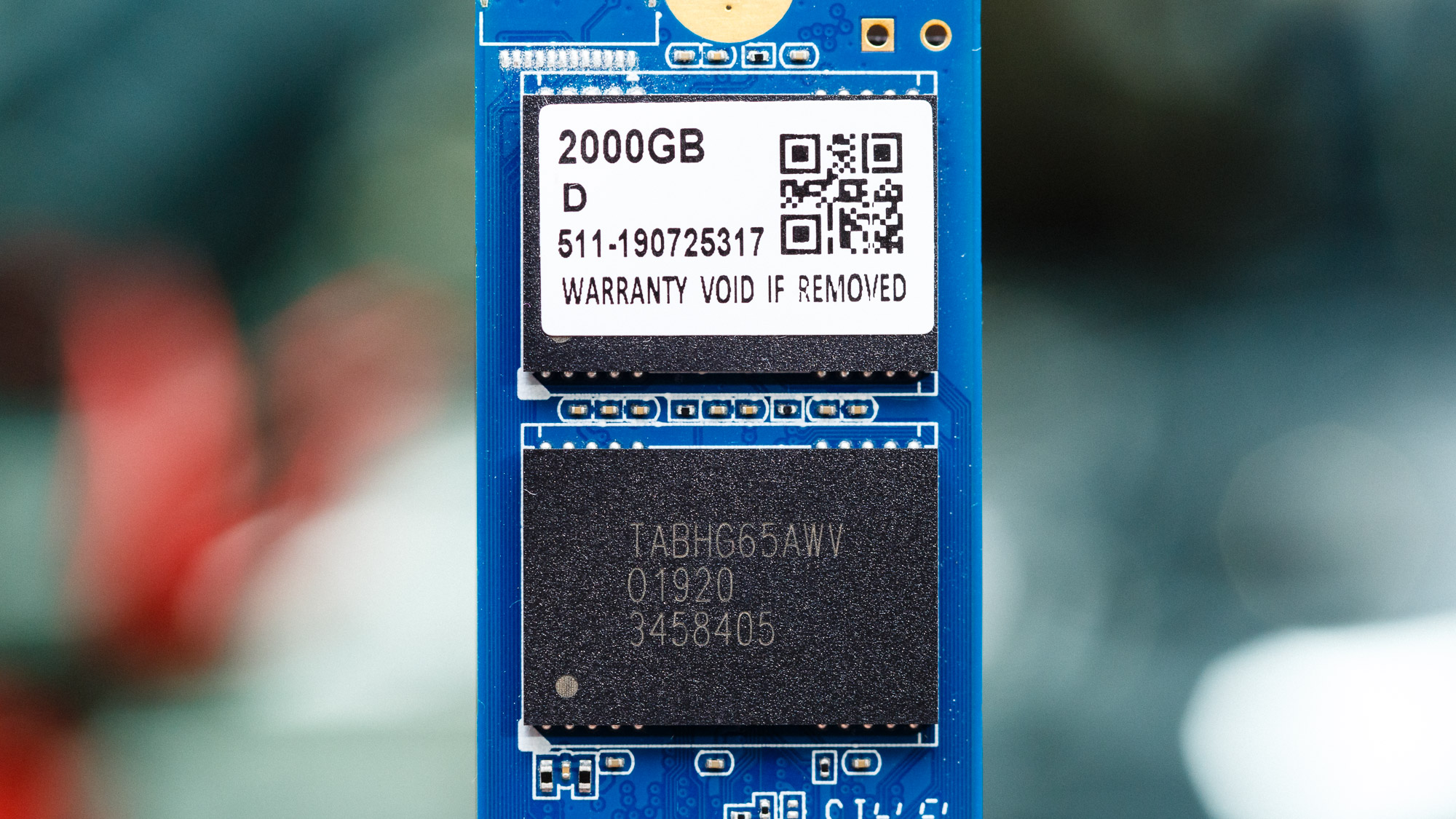
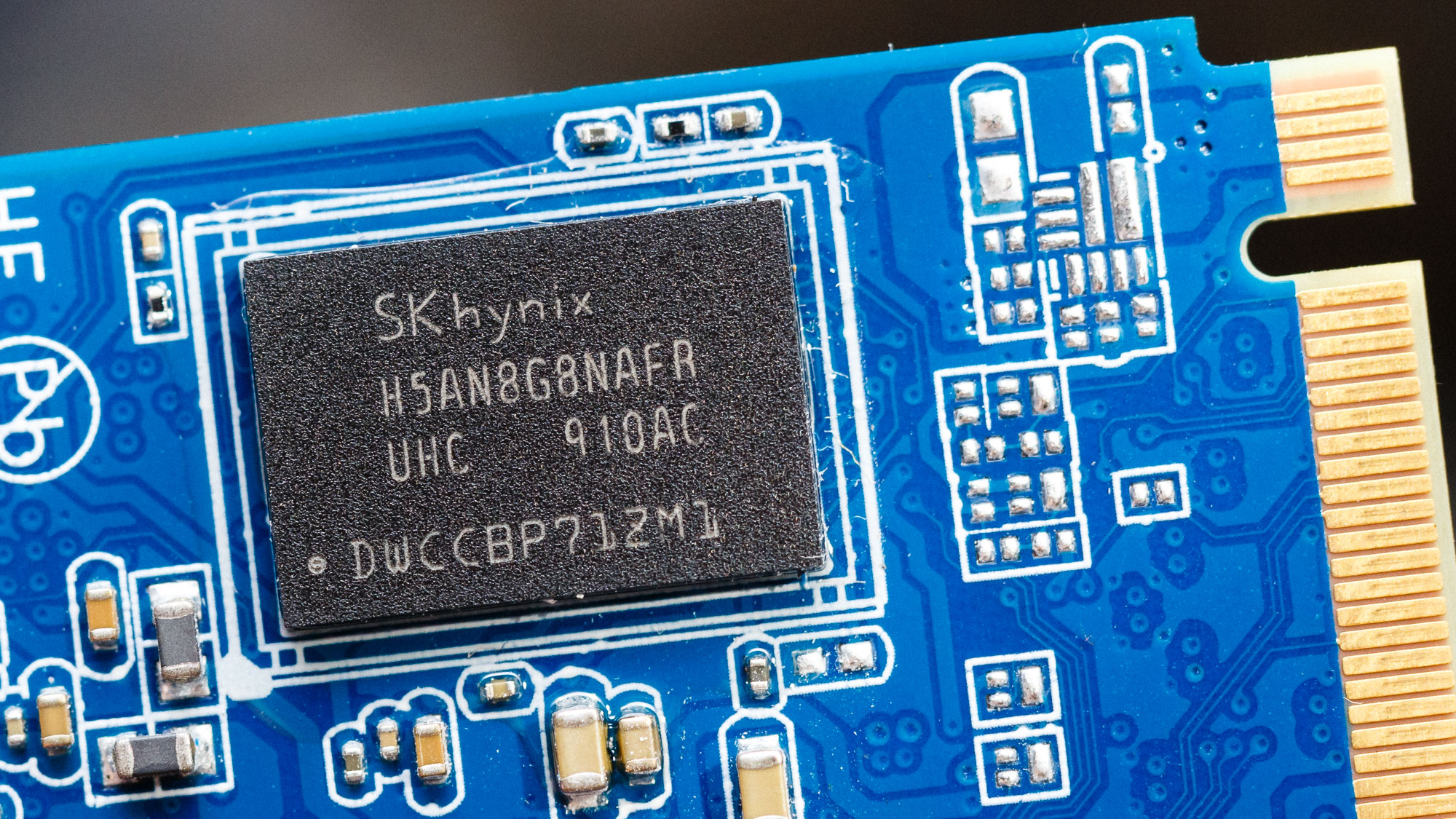

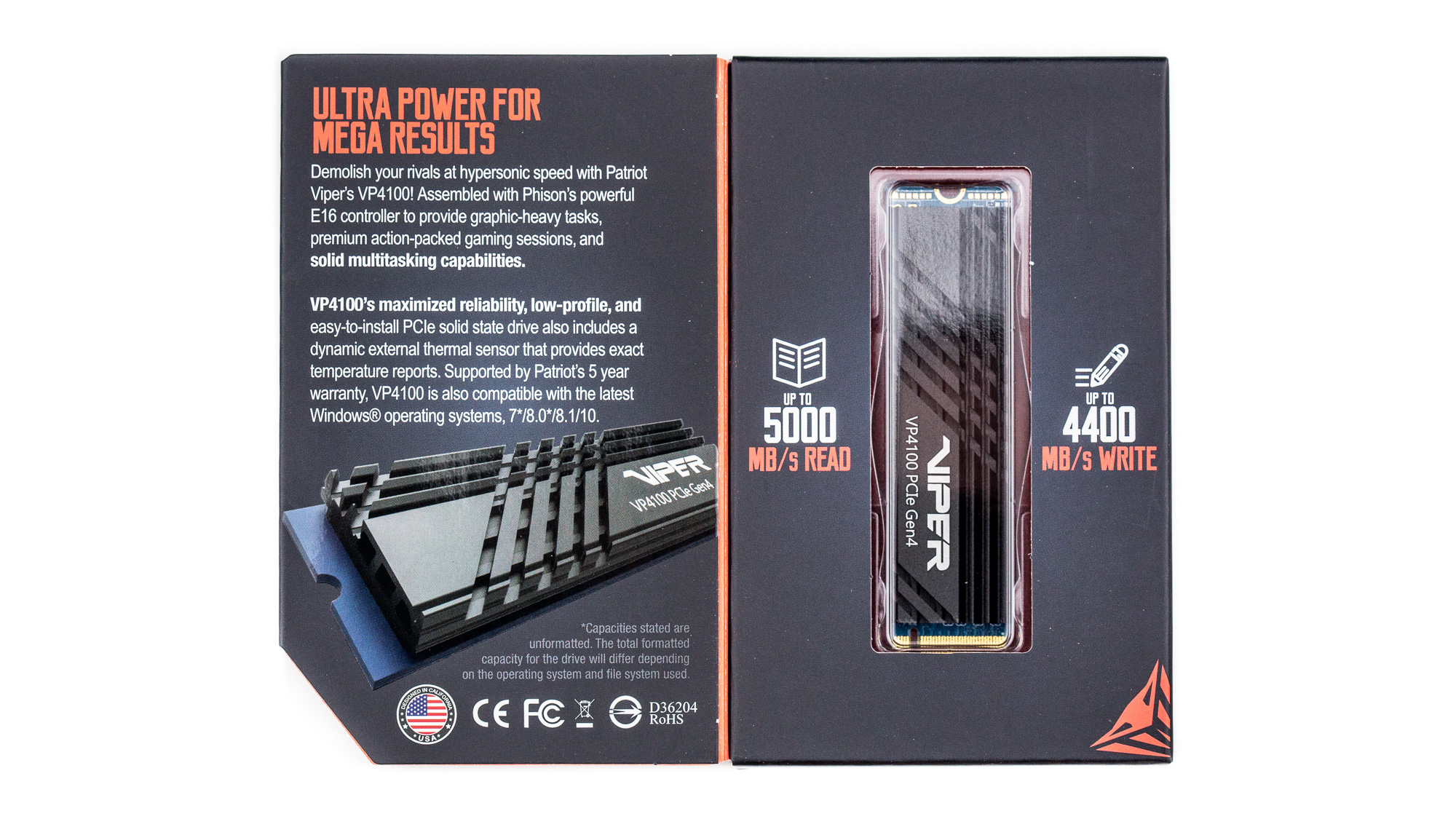
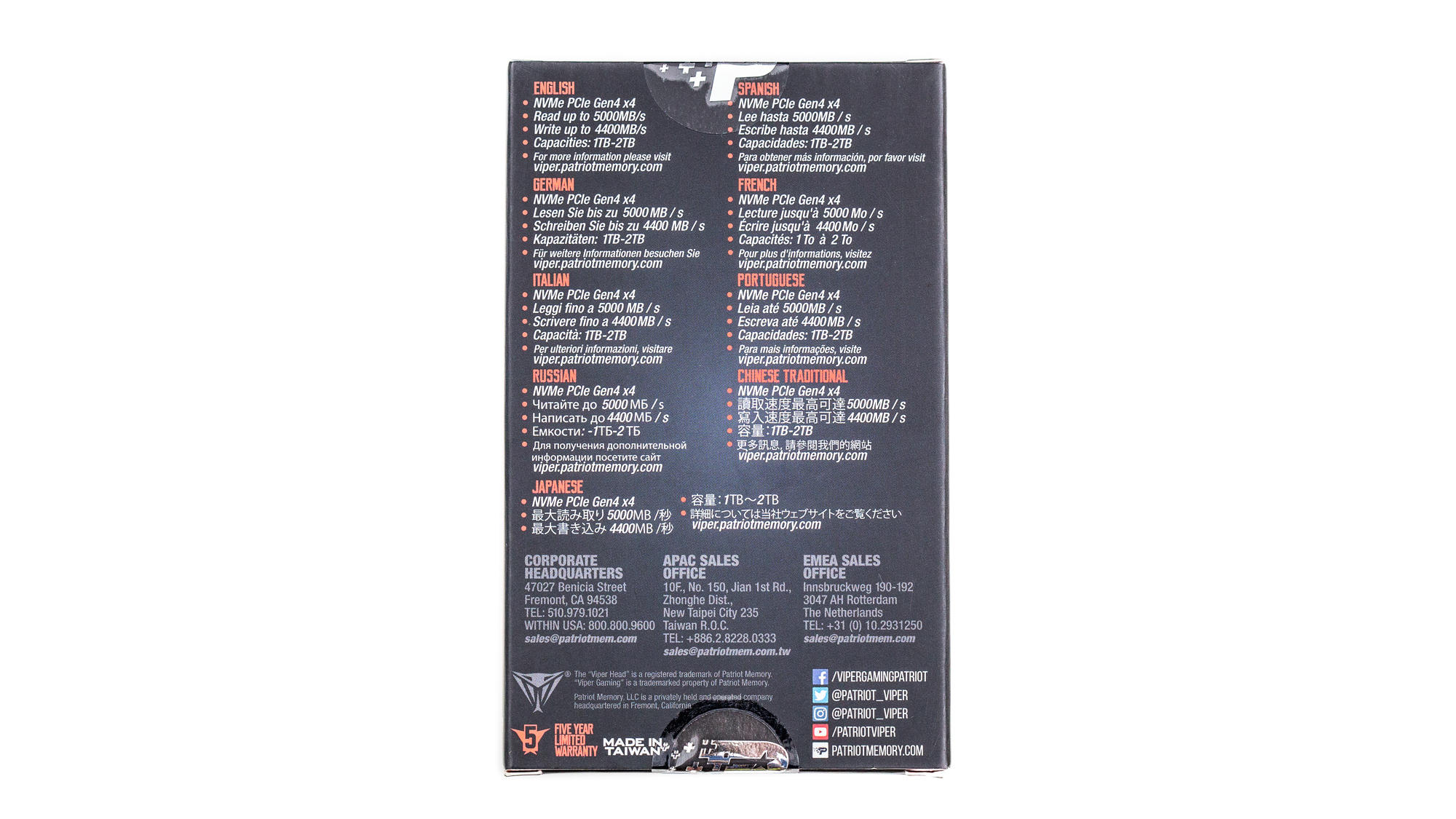
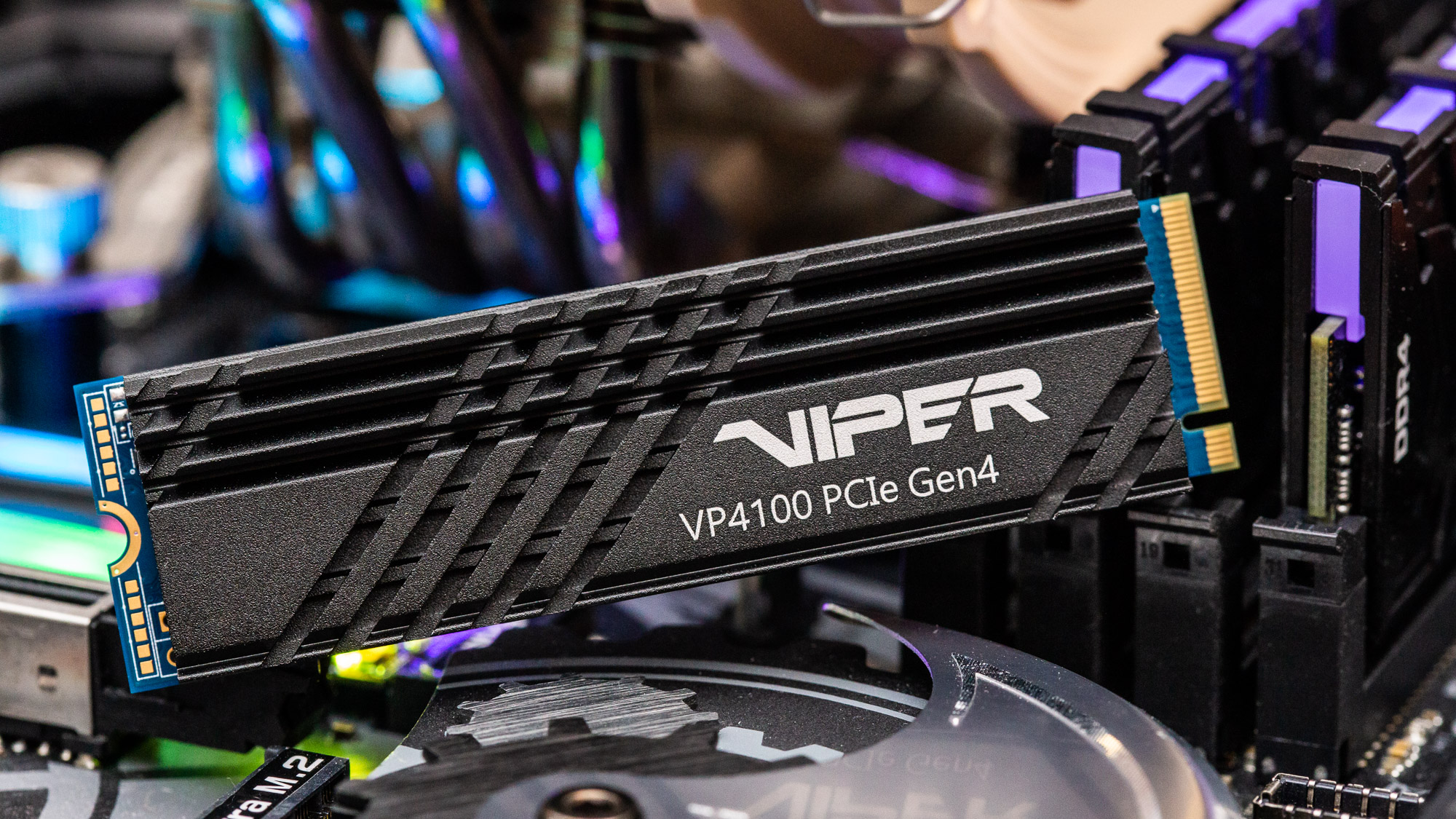
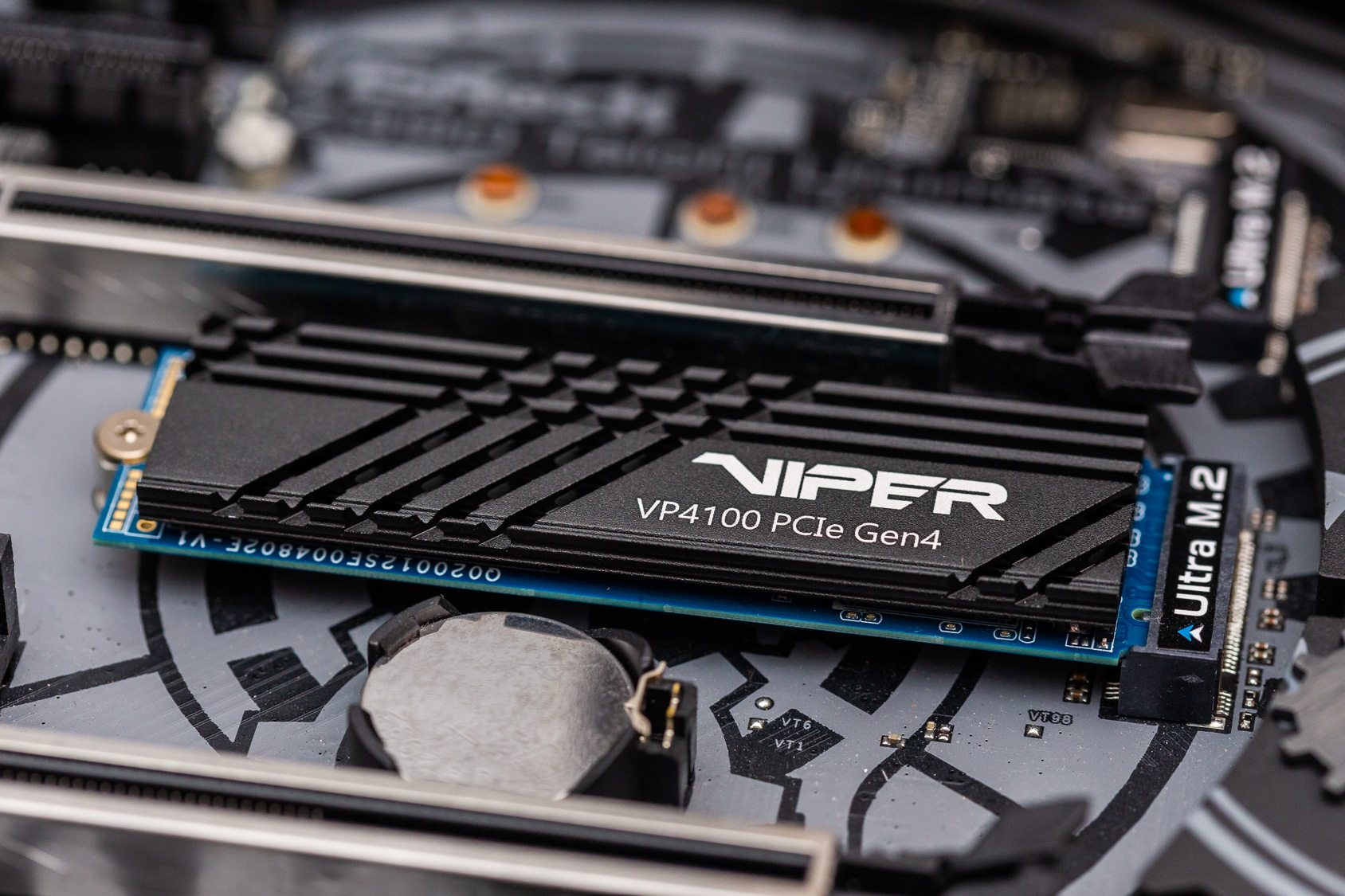
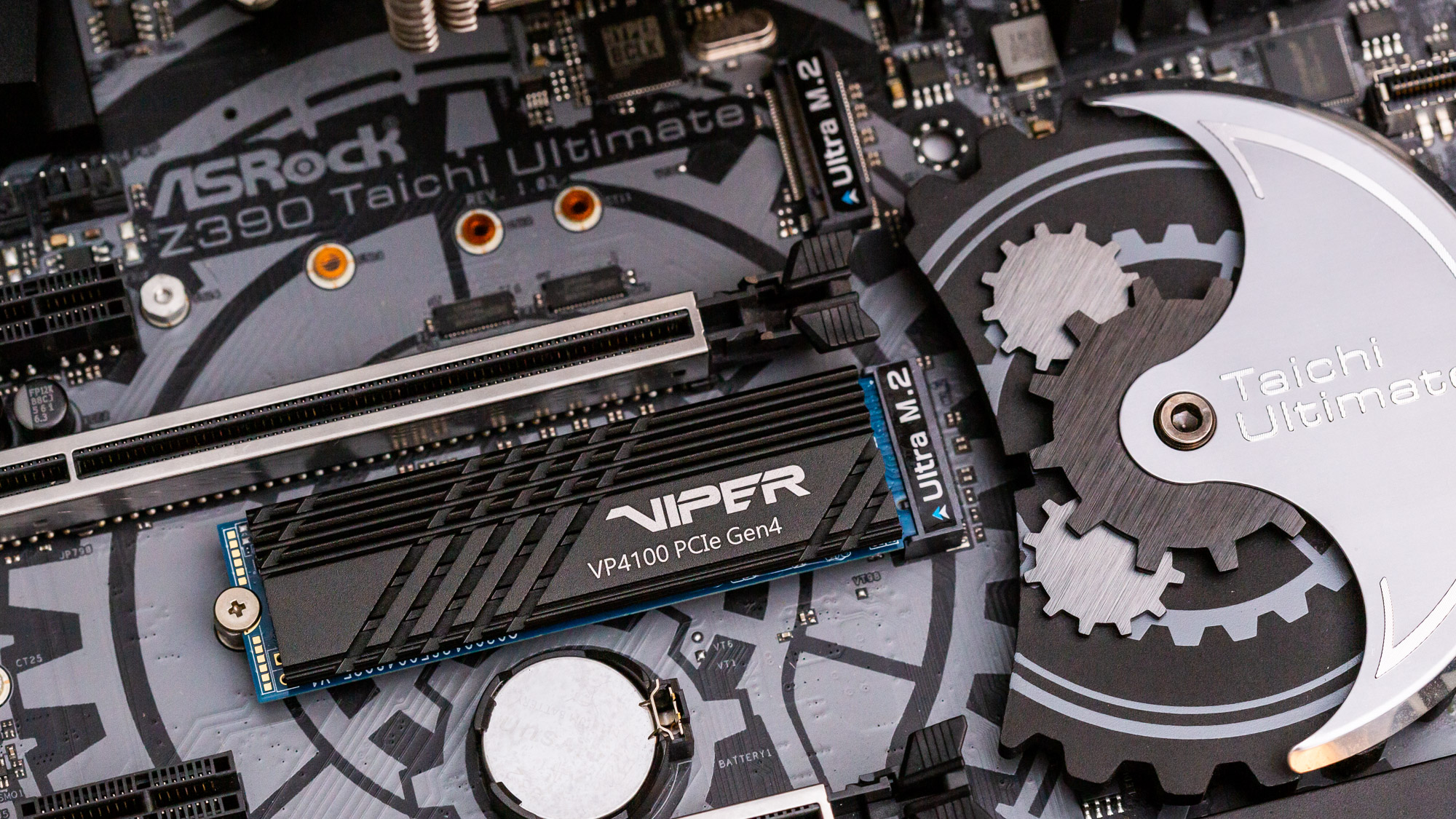
Patriot’s Viper VP4100 is an M.2 2280 form factor SSD. Unfortunately, the VP4100 features a blue PCB rather than black, but Patriot manufactured it with an edgy looking heatsink that efficiently cools the SSD when it is under load.
Get Tom's Hardware's best news and in-depth reviews, straight to your inbox.
We don’t recommend trying to pull the heatsink off, as the adhesive is very strong, and you can rather easily damage the drive.
Peeling back the heatsink, we see Phison’s E16 PCIe 4.0 x4 NVMe 1.3 controller. The E16 is similar to the company’s E12 controller, only it comes with support for the newer and faster PCIe 4.0 interface, features a newer LDPC ECC algorithm, and interfaces with Kioxia’s BiCS4 96L TLC flash. The NAND dies on our 2TB sample are 512Gbit in density, while the 1TB features a lower density 256Gbit die. This helps to balance performance between the two capacities.
MORE: Best SSDs
MORE: How We Test HDDs And SSDs
MORE: All SSD Content

Sean is a Contributing Editor at Tom’s Hardware US, covering storage hardware.
-
nofanneeded Companies need to focus on IOPS , the Sequential performance is not that important over 3500MB/s it is more than enough , and external device cant touch that speed today so copying and pasting large files at 5000MB/s is not even utilized ...Reply
Focus on IOPS ... PLEASE. -
nitrium Is there a reason you dropped the Adata XPG SX8200 Pro from all the comparisons charts? Seems especially strange given it's supposedly Tom's Hardware favourite SSD?Reply -
seanwebster Reply
I didn’t have the 2TB sample at the time. I did include the HP EX950 though. It features the same hardware, so the performance should be similar.nitrium said:Is there a reason you dropped the Adata XPG SX8200 Pro from all the comparisons charts? Seems especially strange given it's supposedly Tom's Hardware favourite SSD?
But, for a more accurate measure, I have just received the 2TB SX8200 Pro in the mail and will be posting up some updated benches with both of these SSDs soon. -
daglesj Replynofanneeded said:Companies need to focus on IOPS , the Sequential performance is not that important over 3500MB/s it is more than enough , and external device cant touch that speed today so copying and pasting large files at 5000MB/s is not even utilized ...
Focus on IOPS ... PLEASE.
Not to mention OS/File System improvements to better handle tens of thousands of micro files without dropping to KBps data rates. Shifting video data etc. is no biggie. It's microfiles that are the real killer today.